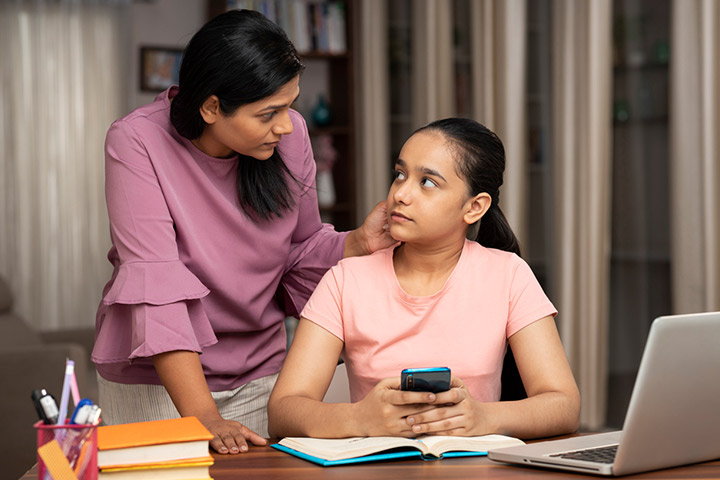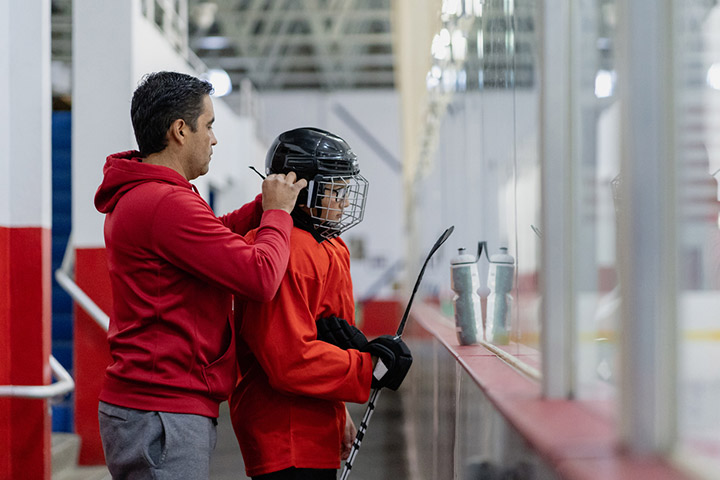
Image: iStock
Parents are excellent worriers. They worry about their child day in and out. What they are doing, have they eaten, who they’re hanging out with, and if they put on enough sunscreen today. Their mind is forever plagued with questions and concerns regarding their little ones, even if they are not so little anymore. As a parent, it’s only natural that you’d like to keep your children healthy and safe. However, there’s a limit to everything. Remember, too much of good stuff is bad stuff and that’s certainly true with respect to anxious parents. Some people are just more anxious than others. It can’t be helped but it should be managed as it can have an adverse effect on your child. Anxious parents never lack in the imagination department. Which means everything from climate change to the shade of their child’s favorite ice cream can be perceived as a threat. Unfortunately, anxiety can be passed down from generation to generation so you must take caution not to pass it down to your kids (1). Here’s how you can recognize if you are an anxious parent and how you can keep from passing it down to your kids.
1. You Project Your Anxiety Onto Your Child
Image: IStock
Anxious parents have a tendency to repeat information over and over again, especially if it’s something negative. For example, if you have a fear of stray dogs and talk about it in a scared and frightened tone, your child may develop the same fear or a phobia of dogs in general (2).
Instead of blowing things out of proportion and making your child scared, remember that you are in control. Teach your child what to do in case of emergencies, like if a stray dog bites them or shows aggressive behavior. It is important to keep your emotions under control and stick to facts. This way your child will know how to handle themselves in a crisis but won’t have an innate fear of dogs.
2. You Monitor Your Child 24/7
Image: IStock
Anxious parents tend to be paranoid and attached, really attached to their children. They are also extremely possessive (3). If you check your child’s grades everyday, watch them play sports, berate them for not eating their share of cut fruits every morning and make sure everything is done with utmost diligence to the annoyance of your child, chances are you are an anxious parent. As a result of your behavior your child will become a perfectionist. And no, this isn’t a good thing (4). If your child makes the smallest mistake you think of the worst case scenario and over exaggerate, it will make them afraid to make mistakes and learn from them. You might think you’re looking out for your kids, but that might be the problem in and of itself.
You must realize that you can’t and shouldn’t want to control everything your child does. Instead, focus on the role you play. If your child likes to read, buy them a couple of books and discuss them together. You can be a part of their lives while still maintaining healthy boundaries.
3. You Satisfy Your Child’s Every Wish
Image: IStock
Everytime your child throws a tantrum or looks dissatisfied, you rush to console them and rectify the situation. For anxious parents, tantrums or just a simple fit can signify an intense need for something and if they don’t satisfy it, anxiety takes over their mind (5). Oddly enough, mishevarior can also be a sign of anxiety. For example, if your children refuse to answer the teacher’s questions due to the fear of failure or rejection.
Instead of having to cater to every single want and whim your child has, sometimes just try ignoring them. They don’t need another i-pad or dinosaur toy. Sooner or later the tantrum will die down and your child would have forgotten all about their latest obsession in the blink of an eye. If your child is misbehaving due to feelings of anxiousness, talk to them about it without any judgment. Let them tell you how it’s affecting them and take professional help for yourself and your child if necessary.
Being an anxious parent does not mean that you are a bad parent. It just means that there are some obstacles that you have to get through in order to ensure that your kids develop in a healthy manner. This doesn’t mean you have to do it alone. Take the help of your partner, family, friends and community. Let them help you out whenever you give into your tendencies. Be open about your struggles with your children. Constant communication will make things manageable. Happy parenting!
















